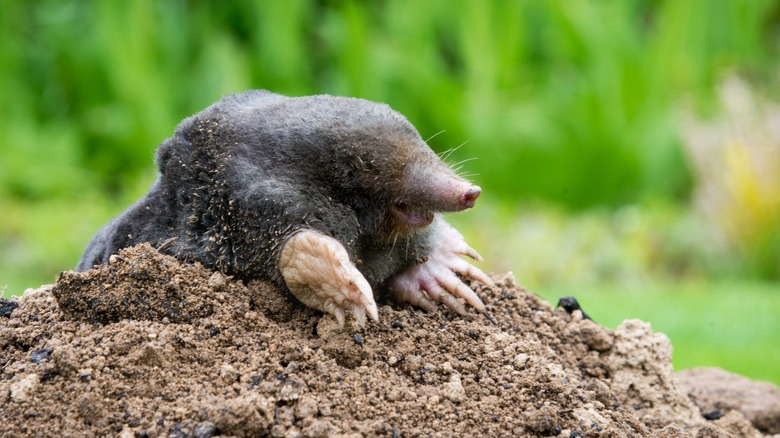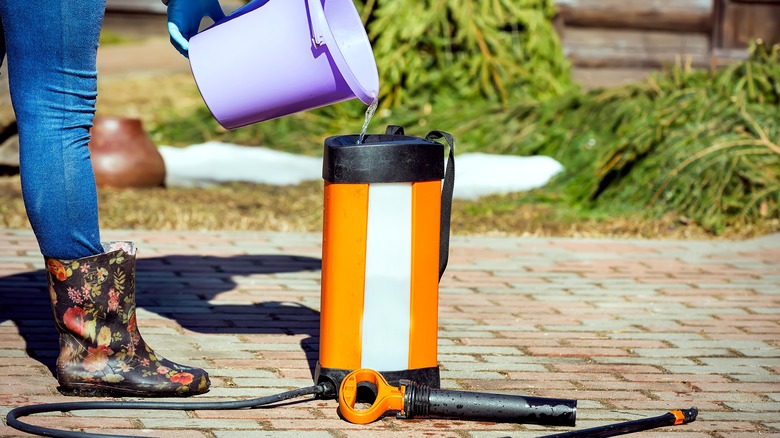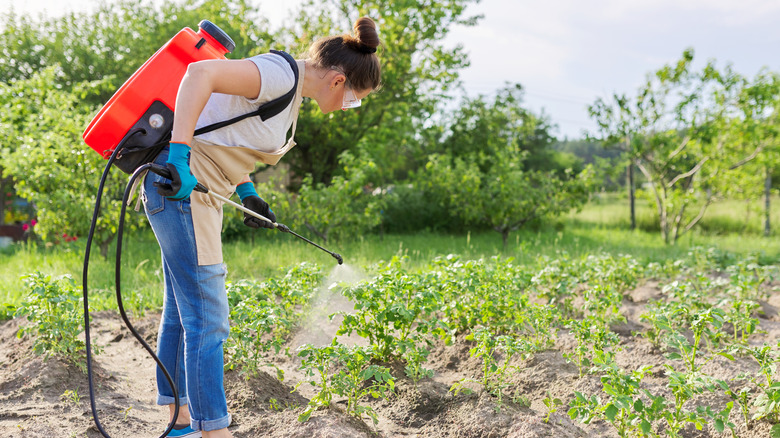The Pests That You'll Repel From The Garden With Castor Oil
If you're trying to protect your lawn and garden from animals that damage your plants and make a mess of your yard, finding safe and non-toxic options can be challenging. Fortunately, castor oil is a natural and effective solution that can repel various tunneling animals, such as moles, voles, and gophers. It can also deter other unwanted wildlife, like raccoons, skunks, and armadillos that cause damage while digging for grubs. And it does so without harming the critters or damaging your lawn, plants, or flowers.
Castor oil, derived from the seeds of the Ricinus communis plant, is a natural and safe alternative to chemicals and traps. It has unique properties that can effectively disrupt pests' feeding and nesting behaviors. The oil produces a distinct scent and an unpleasant taste, which can deter pests from digging up your lawn and chewing on garden plants, making it an ideal choice if you're looking for a safe and sustainable option.
Treating your yard with castor oil
Safeguarding your garden against tunneling animals with castor oil is a straightforward process that uses just a few basic materials. To begin, make sure you have high-quality, cold-pressed castor oil, preferably organic. This type of oil is free from any toxic chemicals or additives, and it retains its natural properties. You can opt to use a spray bottle for smaller areas. A pump sprayer or a spray bottle that connects to a garden hose is great for larger spaces.
Identify the specific areas of your garden that are being targeted by pests. Look for signs of damage, such as tunnels, mounds, and holes in your yard. Then, mix three tablespoons of castor oil and one tablespoon of dish soap with a gallon of water. Stir the mixture thoroughly to ensure proper dilution. If you use a hose-end sprayer, you only need castor oil and soap in the bottle. Apply the solution to the affected areas of your yard, spraying a generous amount directly onto the soil, plants, and any tunnels or entry points created by the digging pests. Repeat the application every few weeks or after heavy rainfall to maintain a consistent barrier to deter pests effectively. Keep a close eye on your garden to observe the effectiveness of the castor oil. You should notice a reduction in unwanted animal activity and damage over time.
Precautions and considerations
It's important to exercise caution when using castor oil, even though it's generally considered safe and non-toxic. Skin irritation is a potential concern, so it's advisable to wear gloves and protective clothing during application. When using castor oil as an animal repellent in areas that pets often visit, it's also crucial to be cautious. Dogs and cats may be curious and attempt to lick or consume castor oil-treated areas in the garden, and ingesting castor oil can cause symptoms like vomiting, diarrhea, and gastrointestinal discomfort in pets.
While castor oil is an effective natural repellent, it's worth mentioning that results may vary depending on the severity of the infestation and the persistence of the pests in your area. In some cases, you may need to employ additional pest control methods, such as physical barriers or companion planting, to keep unwanted critters from digging up your lawn and garden.


